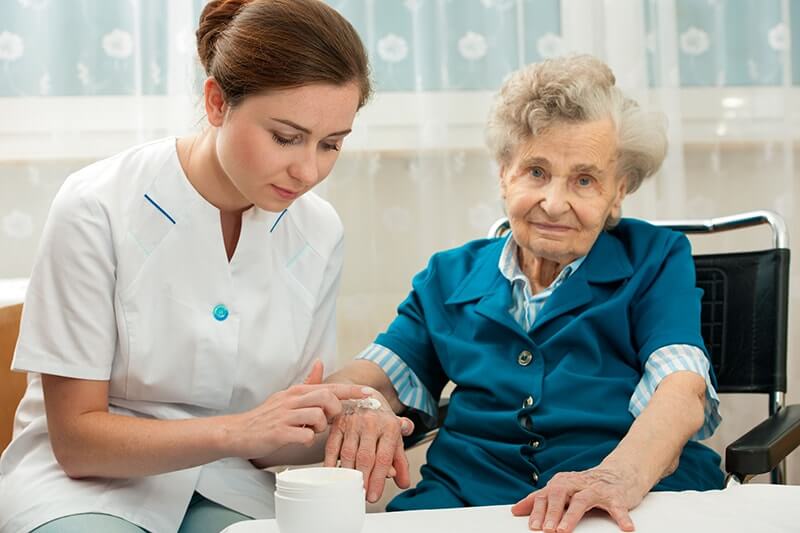Nashville, Tenn.-primarily based Ascension Saint Thomas sanatorium partnered with Contessa, an acute domestic care management employer, to provide its patients home recuperation care services, which include telehealth appointments and faraway monitoring.
The services will roll out this autumn for sufferers with acute, non-life-threatening clinical conditions, which include congestive coronary heart failure and pneumonia. A Saint Thomas physician examines the affected person earlier than he or she starts evolved home care treatments to ensure the man or woman’s safety. The patient additionally undergoes 30 days of far-off tracking after starting Contessa’s offerings.

“The purpose is to preserve humans wholesome while information health facility care is every so often needed,” stated Amber Sims, Ascension Saint Thomas chief strategy officer, in line with an information launch. “When clinic-stage care is wanted, we can offer the affected person’s domestic as a domain of care to retain serving because the excessive excellent, low-value health machine is imparting a wonderful experience for our companies, sufferers, and households.”
Ascension Saint Thomas operates nine hospitals in Tennessee in addition to the doctor-led medical organization Saint Thomas Medical Partners, which offers primary and unique care offerings in Tennessee and Kentucky. The Care Industry is disappointed in the Government’s recent white paper entitled “Caring for our future: reforming care and support” as it fails to offer a long-term care funding solution. The industry had hoped that the White Paper might propose a government-financed cap on care costs, which all but the poorest older adults have to meet out of their resources.
The central thrust of the Dilnot Commission’s report (which the Government had itself commissioned) was that a universal cap of £35,000 on care costs would cost the Exchequer only £1.7 Billion in a full year and would remove the fear and risk of huge liabilities for the individual and their family should they need expensive care for a long time. The Dilnot report argued that this would benefit both the community and the individual: it would be perceived as a more just system; it would encourage saving, not discourage it; it would broaden the market for insurance products to help people fund their care. But the proposal has been deferred to an indefinite future. So after that hope is dashed, what is left?
The scope of the White paper is more modest: some tweaking here, some tinkering there, some new low-cost initiatives for training and to encourage Local Authorities to improve their online information services; some proposals to develop a voluntary central register of Quality measures (mediated by the DoH) to try and fill the gap left by the withdrawal of the Regulator’s star rating service. The main topics addressed in the White paper are summarised below, and this is followed by a precis of each of the chapters. It is instructive to read, not least because it gives insight into the limits to the power of the Central Government to institute major Health and Social care reforms. The Government depends on and has to work with a host of Local NHS bodies, Local Authorities, Quangoettes, and voluntary bodies committed to local consultation, participation, information gathering, and sign-posting to achieve its strategy.
The main topics which the White paper addresses are;
Promoting initiatives that foster voluntary and self-help groups and activities
Promoting the development of specialized housing for older and disabled people
Developing a national online website to provide clear and reliable information on care and support (£32.5 million for better online services)
Work with various organizations to build comparison websites to promote feedback and facilitate comparison of service
Introduce a national minimum eligibility threshold for access to care and support
extend the right to an assessment to more carers;
Ensure that no one’s care is interrupted if they move.
Outlaw “contracting by the minute” for dom care.; consult on what to do better when a major provider goes out of business
Improve the quality of training. Legislate to entitle people to have a personal budget. Improve access to independent advice to help people who are eligible for financial support from their local authority to develop their. Investing £300 million over three years to improve joint funding between the NHS and social care to improve social care.
Chapter 2
The white paper addresses the care customer, and this chapter states that care services will be refocused. To promote well-being and independence rather than waiting for a crisis to occur.To put customers in control of their care and support (rather than being passive recipients of what is given to them)
To inform them of their entitlements and responsibilities
To ensure that customers are happy with the care and support they receive
To ensure that care and support is given with dignity and respect






